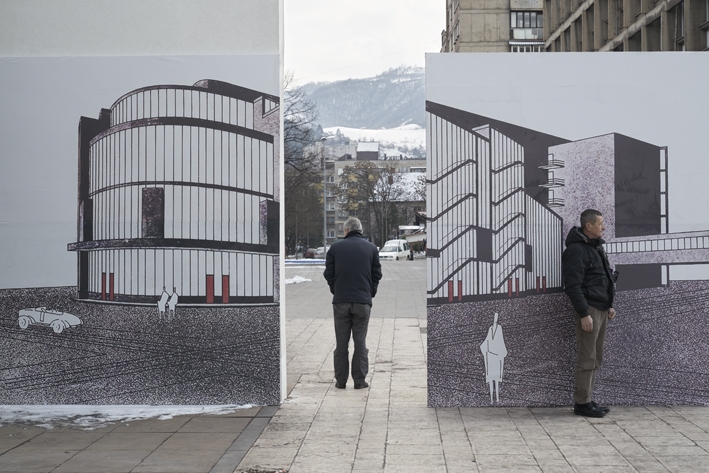ArtReview sent a questionnaire to artists and curators exhibiting in and curating the various national pavilions of the 2019 Venice Biennale, the responses to which will be published daily in the lead-up to the Venice Biennale opening on 11 May.
Danica Dakić is representing Bosnia and Herzegovina. The pavilion is in the Palazzo Francesco Molon Ca’ Bernardo.
What can you tell us about your exhibition plans for Venice?
I will present a film installation titled Zenica Triology that investigates the possibilities and impossibilities of a transition between utopia and dystopia, between the past and the future. The project was realised in collaboration with protagonists from the Bosnian cities of Zenica and Sarajevo. My main interest was to explore the heritage of modernity, from Bauhaus to the utopian paradigms of international and Yugoslav socialist modernism, but also to address social and individual responsibility in the context of contemporary Bosnia and Herzegovina. I hope that the dialogue between Zenica Trilogy and the architecture of the listed Palazzo Francesco Molon Ca’ Bernardo exhibition venue in Venice will generate complex new meanings.
What does it mean to ‘represent’ your country? Do you find it an honour or is it problematic?
While I am honoured to have been selected, representing Bosnia and Herzegovina with its highly complex history and political structure, where two entities commission an artist for Venice, this question is especially nuanced. This being the first time that I am ‘representing’ a country is further complicated by the fact that my artistic practice has manifested internationally for more than 20 years.
Is your work transnational or rooted in the local?
To me, these options are not mutually exclusive: while working with local citizens from the cities of Zenica and Sarajevo, I also refer to ideas that have had influence in a transnational context such as the Total Theatre by Walter Gropius. Starting from the social utopias related to the heritage of the international modernist movement I am also extending the notion of the Total Theater to a space for social activation.
How does having a pavilion in Venice make a difference to the art scene in your home country?
I hope that our participation in Venice will raise awareness of contemporary art with people of political responsibility and result in more continuous support for local arts organisations, institutions and contemporary artists. A more regular Bosnian presence in Venice with contributions from both entities of the country would be a very important first step in developing such long-term cultural politics.
You will no doubt be very busy, but what else are you looking forward to seeing?
I am looking forward to seeing the main exhibition and as many national pavilions as possible.
The Venice Biennale runs 11 May – 24 November
